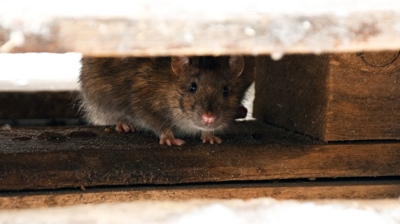
Mite Identification & Prevention
What are mites?
Mites are a type of arachnid hailing from the orders Acariformes and Parasitiformes. Found in nearly every country in the world, these tiny pests feed on plants, skin cells, and even human blood, surviving in some of the most extreme places on earth.
You’re not likely to see mites around your property, as many are extremely tiny or even microscopic. However, there are a few species easily seen by the naked eye, including:
- Clover mites
- Dust mites
- Chiggers
- Scabies mites
- Chicken mites
Mites prefer to migrate wherever their food may be and cannot take up residence in a place without a host. Owning animals and outdoor livestock may increase your likelihood of mites, as well as an active lifestyle that takes you into bushy backwoods areas. You may want to consider setting up professional pest control in Plymouth, MA, to get invading pests under control.

Why Combat Pest Control Is The Right Choice For Your Home Or Business
-
Exceptional ServiceAs a local business that has served the Plymouth area for over 25 years, Combat Pest Control takes our commitment to our customers seriously. We treat you like our neighbors because you are!
-
Affordable TreatmentsPest control should not be something that’s too expensive to be within reach. Combat Pest Control offers a range of pest control options and plans to meet any budget while delivering the service you need.
-
Effective SolutionsAs a licensed and experienced pest control company, Combat Pest Control knows which methods, products, and plans work best to deliver the fast and effective pest control solutions you need.

Hear From Our Happy Customers
They really do say it best!
At Combat Pest Control, your satisfaction is our priority! See for yourself what our customers have to say about working with us.
-
"They were great!"
The owner came out himself and he found a second huge yellow jacket nest that we didn't even know was there and he took care of that nest too.
- Jill G. -
"Highly recommend!!!"
Combat is the best! We couldn’t live in Hanover with John and his crew! Very responsive and thorough.
- Michelle L. -
"Professional, Friendly, & Informative"
John was professional, friendly, and informative. I would highly recommend John and Combat Pest Control to anyone, and if needed in the future they will be the company I call first for any type of pest control in my home.
- Michelle R. -
"The Best!"
Chad is super knowledgeable and friendly. Appreciate his work as well as the rest of the Combat team!
- Robert P. -
"Combat is great!"
They're easy to work with, pricing is great and they always manage to get someone to my house when needed. Having a dedicated technician is helpful too to build rapport with the company.
- Anthony G. -
"I strongly recommend Combat Pest Control"
This is our third year with them. We first called because of ants in the house. I couldn't stop them. Combat did the job and we are ant-free. Combat responds quickly to an ant in the kitchen and wasps and bees nests. Thank you Combat !
- Mark C. -
"Highly recommended."
I'm very pleased with John's pest control performed on my house in south Weymouth. He has found the nest of the ants. I really appreciate his professionalism. Will hire them again and again.
- Shirley H. -
"Made Everything Easy for Us"
John & the Combat team know our house well and the critters that challenge us. He's quick to respond to any attempted incursion and quickly responds to defeat them. They also take great care in working around our dogs
- Kristen P.




.2510291103442.jpg)

